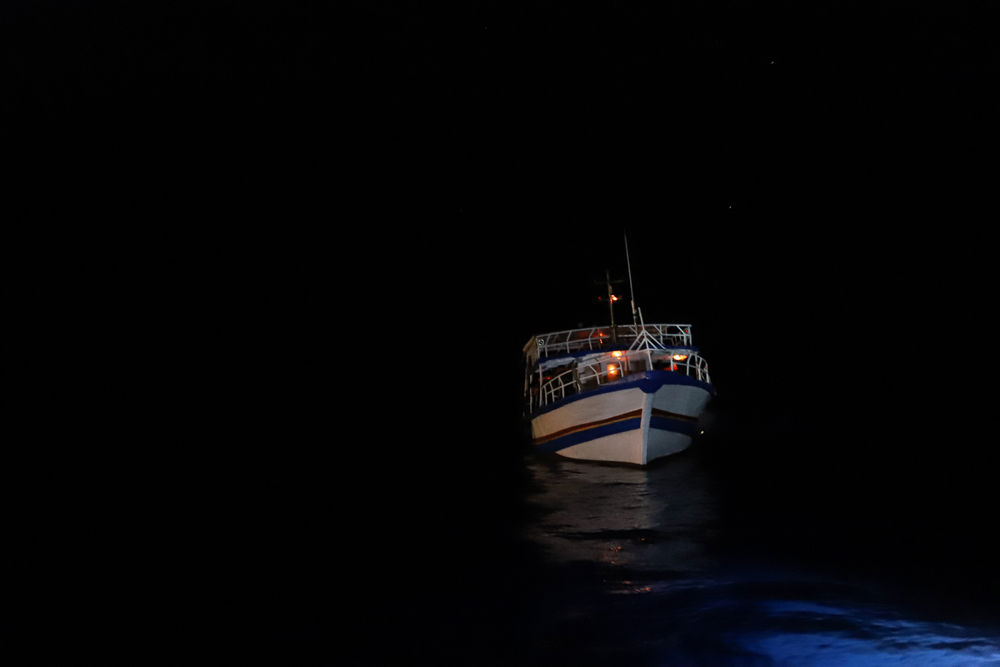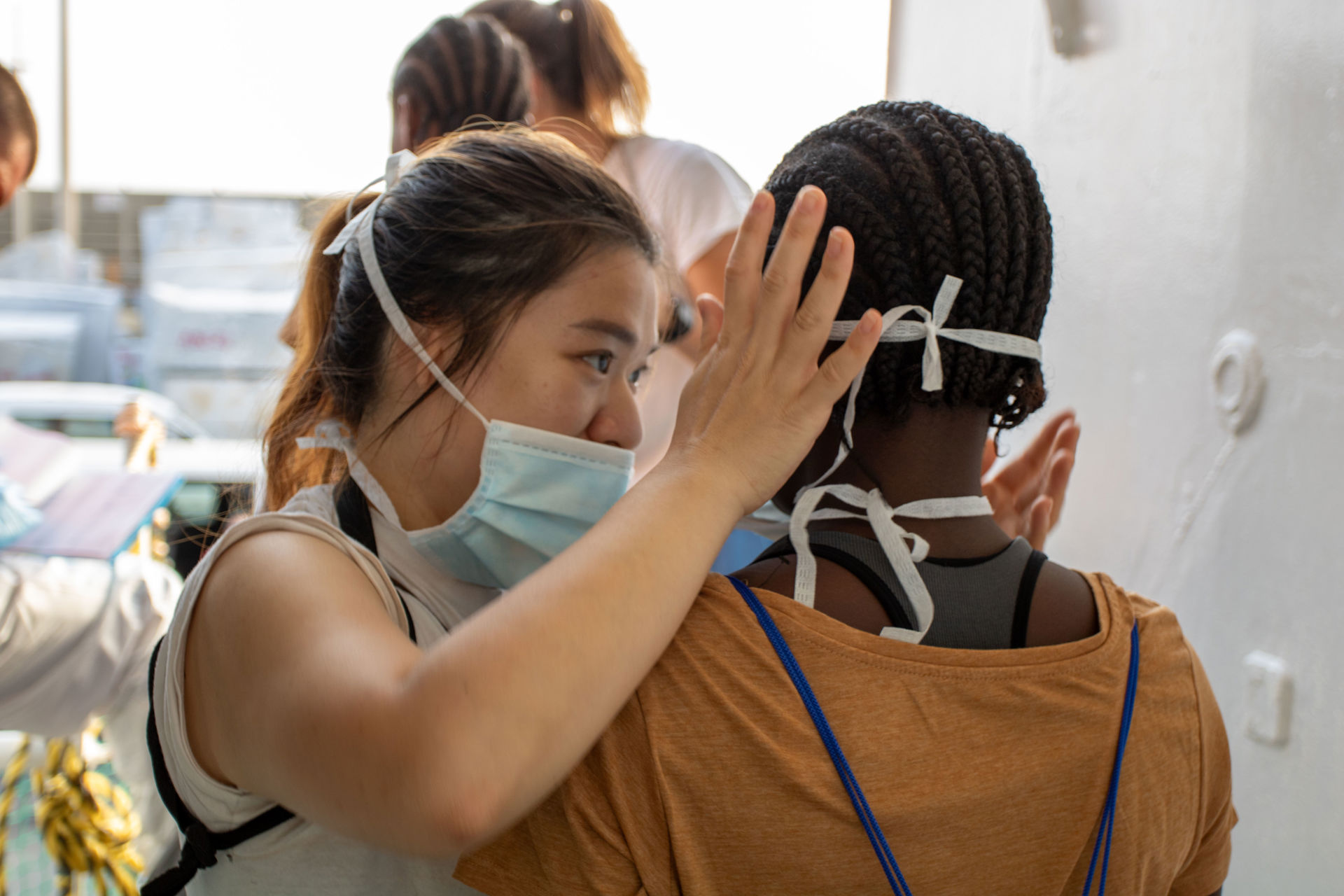Maurizio Debanne has recently returned from the Mediterranean, where he was part of the MSF team rescuing people as they escape from often appalling conditions in Libya. He shares his experience.
"We can choose the trainings we do. But you never get to choose the rescues you’ll be part of."
This was the first sentence, spoken by a member of the search and rescue team during a training exercise, that I carved in my mind.
I was recently on assignment on the Geo Barents, the search and rescue ship operated by Médecins Sans Frontières in the Mediterranean Sea. I had to prepare as best I could, knowing, but above all accepting, that we could expect anything.
In the first few days we simulated rescues, training for what would happen if we had people in the water without life jackets, heavily pregnant women with hypothermia, and unconscious children who needed to be resuscitated.
On the night of my first rescue, there were no children or women. There were only men, many of them barefoot. All with sodden clothes, from trousers to jackets. They had been at sea for 24 hours. Having left Libya, they were travelling on a fishing boat that was literally adrift on the sea. There were dozens of people, even on the roof of the cabin. The boat was swaying. All it would have taken was one wrong manoeuvre. All it would have taken was for the Geo Barents not to be there.
The day after the rescue, what was striking was the long orderly queue of people waiting for medical consultations. For months and years, no one had offered them care. Seeing a doctor can be a rebirth. Someone who listens to you, who puts their hands on you only to heal you.
As a team member onboard the ship, you enter the lives of the people on board in different ways. Firstly, just by talking...
Ahmed*, just over 30 years old, comes from Homs, Syria. For years he worked in Africa. I meet him one night, on the deck of the Geo Barents. He approaches me, trying to catch my eye. I smile. It is obvious that he wants to talk.
Ahmed tells me his story in French. At the Libya chapter, words suddenly become scarce: he shows me a wound on his arm. A pause. And he resumes: “I was intercepted twice at sea by the Libyan coastguard, and forced to go back to Libya. Now I am happy, merci”.
I tell him to get some rest, it's one o'clock in the morning. He turns away, towards the stern. Ten minutes later, he’s back. This time his gaze is worried.
‘Lumière, lumière, s'il te plaît vien à voir la lumière’. Light, light, please, come and see the light.
Initially I think he’s asking me to turn off the few lights we leave on the bridge at night. He takes me all the way to the back of the boat, where you can look out to sea. A small group of us stare into the darkness, and in then I see the light. It flashes.
"Is it the Libyans? Are we in danger?" asks Ahmed. I tell him that it’s ok, it’s just a light. He can relax, no one will take him back. But he insists. He asks me to give him my word. I put my hand on his shoulder and tell him without hesitation: 'Tu es dans un lieu sûr, demain on serait à Bari'.
You are in a safe place. Tomorrow we will be in Bari.
Another way we can enter a rescued person’s life is through our offer to recharge mobile phones. Each time I unplug a fully charged phone to return it to its owner, the phone lights up for a few seconds, and children, siblings, parents appear on the screen. Technically these images are screensavers, but actually they are lives. Lives that have entered mine.
Fair wind Geo Barents.
*Name changed
MSF has been running search and rescue activities in the central Mediterranean since 2015, working on eight different search and rescue vessels, alone or in partnership with other NGOs. Since 2015, MSF teams have provided lifesaving assistance to more than 85,000 people in distress at sea. MSF relaunched search and rescue activities in the central Mediterranean in May 2021, chartering its own ship, Geo Barents, to rescue people in distress, to provide emergency medical care to rescued people, and to amplify the voices of survivors of the world’s deadliest sea crossing. Since May 2021, the MSF team on board Geo Barents has rescued over 6,500 people.



